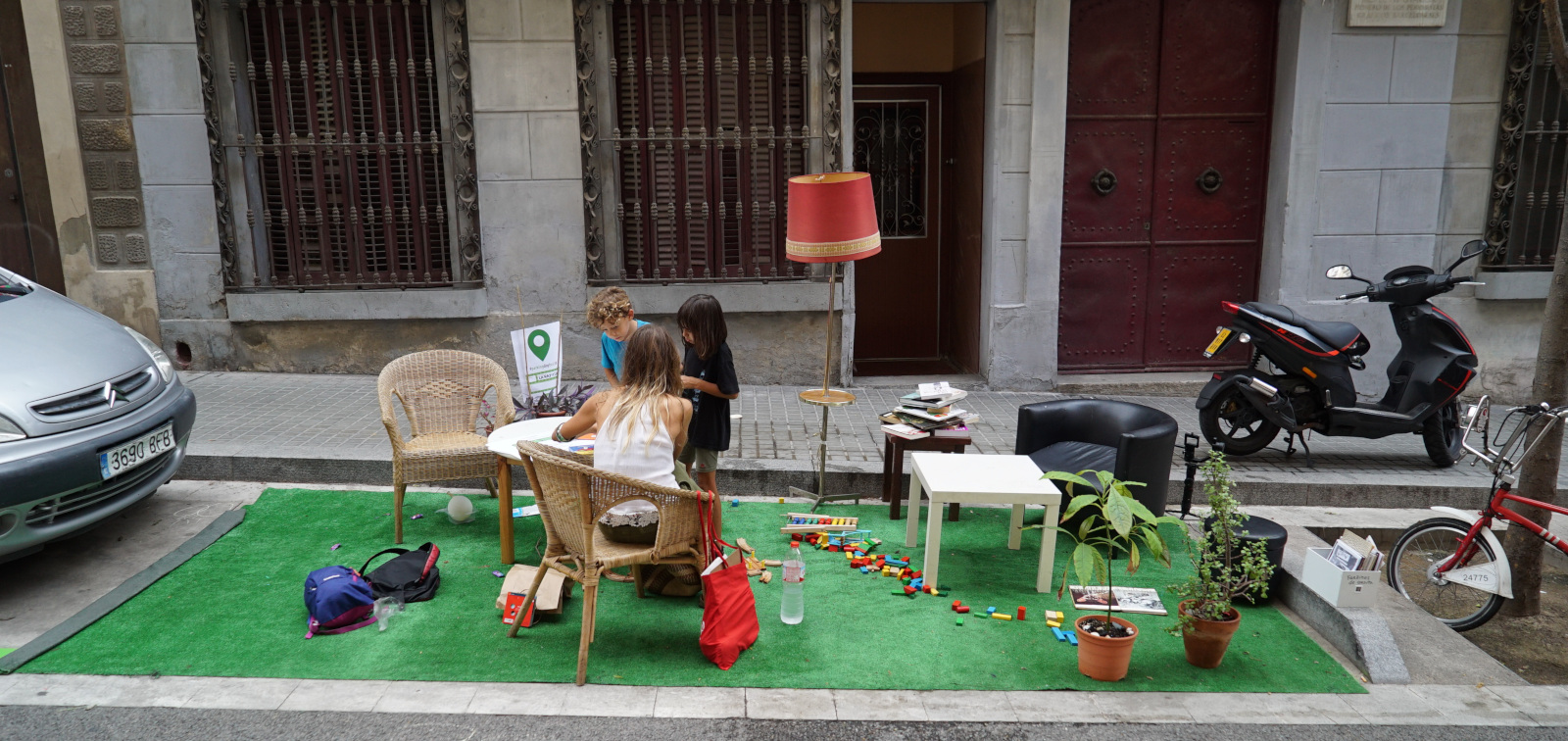Park(ing) Day 2019 Kicks Off Global Week of Climate Action
More than 70 organisations to occupy 130 parking spaces today
20.09.2019
What would happen if the space normally occupied by parked cars in our cities was freed up? How could we put those square metres to use? Once again, Park(ing) Day is asking us to imagine alternative uses for public parking spaces. The mission of this annual event, held in around 200 cities around the world, is to call attention to the need for a people-centred, environmentally friendly urban model.
Today, 20 September, numerous organisations, associations and members of the community at large will temporarily transform Barcelona’s public parking spaces into parks, gardens and other kinds of public spaces. This year, Park(ing) Day Barcelona will take place during the Global Week of Climate Action in order to raise awareness about the climate crisis. The initiative is being coordinated by the Barcelona Institute for Global Health (ISGlobal), a centre supported by ”la Caixa”, in collaboration with the Espai Ambiental cooperative and with the support of the Barcelona City Council.
“Barcelona has more vehicles per square kilometre than any other European city,” commented Raül Toran, Scientific Outreach Technician at ISGlobal and organiser of the initiative. “It is one of the five most polluted cities in Europe with pollution levels well above the maximum limits recommended by the WHO to protect people’s health. We have to take action to expedite the environmental transition of cities. We need urban models that are less car-centric and more geared towards pedestrians, models that encourage the use of active and sustainable modes of transport and provide more people-friendly spaces.”
For Park(ing) Day Barcelona 2019,more than 70 organisations will set up 80 installations—30 more than last year—occupying a total of 130 parking spaces. The city’s parking spaces will host a variety of activities, including a recycling station on Avinguda Vilanova, where visitors can hop on one of eight bicycles to activate a machine that performs the first step in the recycling process (shredding); a Utopia Trio concert on Carrer Parlament; and a fabric-recycling workshop on Carrer Calàbria, where passers-by can learn how to give their garments a second life. The organisers have mapped out several cycling routes around the city to help people visit as many installations as possible.
Measuring Air Pollution With Strawberries
A new item on this year’s programme is a campaign called Vigilantes del Aire. More than a thousand strawberry plants will be distributed throughout Barcelona’s ten districts to analyse pollution levels in each neighbourhood. These plants serve as tiny air-pollution monitoring stations. Over time, particles present in the air accumulate on the leaves of the plants. Using biomagnetic techniques, we can identify the compounds that accumulate on the leaves and perform an aggregate analysis to determine the levels of different pollutants in the city’s air.
Previous studies have shown that the concentration of pollutants on plant leaves is correlated with traffic volume as well as with the presence of trains and trams. The plants will be analysed in a laboratory to determine the quantity of magnetisable particles deposited on the leaves. Once the pollutants in each sample have been identified, the organisers will analyse the local pollution levels by street and neighbourhood throughout Barcelona and create a map showing the spatial distribution of traffic-related pollution in the city.
Vigilantes del Aire is being organised in collaboration with the Ibercivis Foundation, the Pyrenean Institute for Ecology and the Spanish Foundation for Science and Technology (Spanish Ministry of Science, Innovation and Universities), in collaboration with Ideas For Change, ISGlobal and the CitieS-Health.



